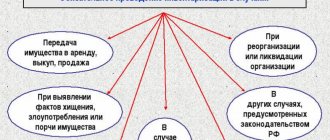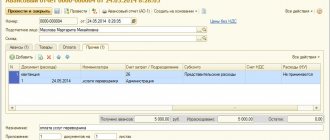Air travel costs typically account for a significant portion of business travel budgets. Business travel expenses are included in other expenses and reduce the amount subject to income tax (Article 264 of the Tax Code of the Russian Federation, clause 1.12), and when using a simplified taxation scheme, they are included in expenses (Article 252, clause 1 of the Tax Code of the Russian Federation). To eliminate the risk of penalties, it is necessary to correctly reflect the movement of air tickets in the accounting registers and collect actual evidence of the expenditure of funds.
What does the law guarantee when sending an employee on a business trip?
A business trip is a trip by an employee by order of the employer for a certain period of time to carry out an official assignment outside the place of permanent work. Moreover, if the permanent work of employees is carried out on the road or has a traveling nature, then their business trips are not recognized as business trips (Article 166 of the Labor Code of the Russian Federation).
According to Articles 167, 168 of the Labor Code of the Russian Federation, employees sent on a business trip are provided with the following guarantees:
- maintaining a job (position);
- average earnings;
- reimbursement of travel expenses;
- reimbursement of expenses for renting residential premises;
- reimbursement of additional expenses associated with living outside the place of permanent residence (daily allowance);
- reimbursement of other expenses incurred by the employee with the permission or knowledge of the employer.
It is the listed standards that characterize the content of a business transaction for reimbursement of expenses incurred on a business trip that we will be guided by when choosing the CVR and sub-articles of KOSGU. We remember that expenses are included in the sub-items of KOSGU depending on their economic content (clause 3 of Order No. 209n).
Principles for choosing KVR and KOSGU
First of all, we note that when sending an employee on a business trip, ensuring the guarantees enshrined in Articles 167, 168 of the Labor Code of the Russian Federation can be carried out in two ways:
- The employee is given an advance to purchase travel documents and pay for the hotel, and is paid a daily allowance. Expenses actually incurred for the business trip are also reimbursed upon return.
- The institution independently purchases travel (flight) tickets for the posted employee, pays for the hotel, purchases fuel, lubricants, etc.
The procedure for allocating expenses to CWR and KOSGU in both cases will differ.
Postings for travel expenses in the budget
In our example, we considered a commercial organization, but if the employer is a budgetary institution, accounting must be carried out a little differently. There are different requirements, so accounting is carried out on other accounts:
- Advance issued: Dt 0.208.12.000 Kt 0.201.34.000.
- Costs written off (per diems, travel, accommodation) based on the advance report: Dt 0.401.20.212 (0.109.60.212–0.109.90.212) Kt 0.208.12.000.
- Unspent funds were returned: Dt 0.201.34.000 Kt 0.208.12.000.
When money is issued, the account increases the off-balance sheet account 18 (KVR 112), and when it is returned, it decreases.
Legal documents
- accounting chart of accounts
KOSGU
As noted above, travel expenses are considered in the context of the Labor Code of the Russian Federation as reimbursements (compensations) related to the employee’s performance of work duties. In international statistical practice, such payments are not considered as payments in the interests of employees, but belong to the category of expenses made by the employee for the purpose of performing work duties. In this regard, reimbursement of expenses related to business trips (travel, accommodation, other expenses related to the performance of official assignments on a business trip), starting in 2021, were transferred to subarticle 226 “Other work, Other payments” * (3) KOSGU ( clause 7, clause 10.2.6 clause 10 of Procedure No. 209n, clause 2.1.4 of the Methodological recommendations for the procedure for applying KOSGU, communicated by letter of the Ministry of Finance of Russia dated June 29, 2018 No. 02-05-10/45153).
More on the topic: Cost of property received free of charge
If we are not talking about reimbursement of expenses, but about providing the employee with everything necessary before a business trip (when the institution independently purchases tickets, pays for a hotel, etc.), then the institution’s expenses will include, in particular:
- to subarticle 222 “Transport Other work, Payment for work, services” of KOSGU, articles and subarticles of group 300 “Receipt of non-financial assets” of KOSGU, based on the economic sense.
Note! Expenses regarding daily allowances are still included in subarticle 212 “Other non-social payments to staff in cash” of KOSGU (clause 10.1.2 clause 10 of Procedure No. 209n).
How to write off the service fee for returning railway tickets
When accounting for expenses to reduce the taxable base for income tax, expenses should be:
- Confirmed by documentary forms.
- Economically justified - committed as part of an activity aimed at making a profit.
- Executed in forms permitted by law.
In document flow, it is allowed to use a non-documentary form - electronic tickets (ETTs). Documents are purchased by non-cash online payment.
Having a document is not enough to confirm expenses and the fact of travel. To certify the actual receipt of services on railway transport, you must have a route/receipt, boarding pass.
The fact of payment is confirmed by an extract from the electronic system - a control coupon.
Accounting for train tickets in accounting
Refund amounts and commissions when returning train tickets applications for refunds for an unused train ticket To receive your own money spent on purchasing a ticket, you need to provide:
- Electronic travel document or order number;
- Internal Russian passport (required to confirm identity);
- Also provide your passport number;
- If a boarding pass printed on the ticket form was previously issued, then it should also be attached to the package of documents along with the passport;
- Submit the document package to the ticket office that handles refunds for tickets.
It is worth paying attention to the fact that you can only return an electronic ticket that was purchased for an international destination (for example, to Europe) at ticket offices that sell international tickets.
Acceptance of service fees for the purchase of train tickets
It should only indicate the difference between the amount of the commission calculated initially and the adjusted amount of the agent's commission after the return of part of the tickets. The cost of returned tickets should not be indicated there.
During the period of receiving an adjustment invoice or primary documents for changing the cost of the service fee, you need to restore part of the VAT previously accepted for deduction on the agency fee in accounting and register the adjustment invoice in the sales book. 4 p. 3 art.
170 Important Tax Code of the Russian Federation; clause 14 of the Rules for maintaining a sales book, approved. Government Decree No. 1137 dated December 26, 2011. You recognize the excess amount of the fee recognized as expenses in income.
The fee that the carrier withheld when returning money for returned tickets can be taken into account as other expenses in accounting and non-operating expenses in tax accounting. 13 clause 1 art.
Commission fee for returning train tickets
Attention In this case, the intermediary services of a person are only the amount of remuneration paid to a third party. When accounting for BSO, the data of the intermediary is not reflected in the purchase book; only the carrier is indicated.
Actions when returning a ticket Canceling a business trip or rescheduling it requires returning the purchased ticket. An order is issued regarding the cancellation of a trip to perform an official assignment with instructions regarding the amounts to be accounted for.
In the standard version, the amounts received by the employee are received after returning the purchased ticket to the company's cash desk. When submitting the document, the carrier does not refund the fee paid when purchasing the ticket. Example 1. Employee M. was sent on a business trip on behalf of the enterprise.
The employee was given the amount of 3,000 rubles from the cash register. The cost of the purchased ticket was 2,300 rubles.
We will write off the fine for returning the ticket as an expense.
When purchasing train tickets through an intermediary, the company has several accounting options. When purchasing tickets, the amount includes the cost of travel corresponding to the price of the carrier and the amount paid for intermediary services.
Features of accounting for direct purchase and through an intermediary: Operation Direct purchase Purchase from an intermediary Accounting for the cost of tickets in expenses At the time of recognition of the expense on the advance report, in case of non-cash payment - after the report on the business trip (submitted to the manager) Similarly Accounting in expenses for the cost of services None Accepted in accounting after completion and receipt of documents Accounting for VAT on tickets An entry in the purchase book is made on the basis of railway tickets (BSO) Similarly Accounting for VAT on services Absent At the time of recognition of the expense In practice, cases arise when an intermediary issues documents on his own behalf for the cost of a ticket and service collection
At the request of the host party, the business trip was postponed to a later date. M. was forced to return the ticket purchased in advance to the railway ticket office with the loss of the fee in the amount of 150 rubles. The following entries were made in the company's accounting:
- The amount issued for the report is taken into account: Dt 71 Kt 50 in the amount of 3,000 rubles;
- The amount of the report for the amount of the fee is reflected: Dt 91 Kt 71 in the amount of 150 rubles;
- The balance of the account amount was accepted at the cash desk: Dt 50 Kt 71 in the amount of 2,850 rubles.
Expenses for a canceled business trip are included by the enterprise in other expenses.
Source: https://advokat-zulfigarov.ru/kak-spisat-servisnyj-sbor-za-vozvrat-zhd-biletov-provodki/
KVR
One of the essential requirements of the approved structure of types of expenses, enshrined in clause 46.5 of Procedure No. 85n, is the reflection of travel expenses * (4), as follows:
- issuance of cash to seconded workers (employees) (or transfer to a bank card) on account of the guaranteed expenses listed above - according to CVR 112 “Other payments to personnel of institutions, with the exception of the wage fund”, 122 “Other payments to personnel of state (municipal) authorities, with the exception of the wage fund", 134 "Other payments to military personnel and employees with special ranks" and 142 "Other payments to personnel, with the exception of the wage fund" (see also clause 48.1.1.2, clause 48.1.2.2, clause 48.1.4.2 clause 48 of Order No. 85n);
- payment for the purchase of tickets for travel to and from the place of business trip and (or) rental of residential premises for seconded workers under agreements (contracts) - according to KVR 244 “Other procurement of goods, works and services”.
Thus, Procedure No. 85n clearly establishes the use of various CVRs when reimbursing an employee’s expenses and when an institution purchases services for him under a contract.
More on the topic: Form 0503773 in 2021: what to consider?
Note! According to clause 46.5 of Procedure No. 85n, the list of other expenses incurred by a posted employee with the permission or knowledge of the employer, attributable to CVR 112, 122, 134 or 142, is determined by the employer in a collective agreement or local regulation (due to the specifics of the activities of individual main managers of budget funds - in a normative legal act). That is, if the relevant act does not indicate certain expenses incurred by an employee on a business trip with the knowledge of the employer, they cannot be attributed to CVR 112, 122, 134 or 142. In this case, the expenses will be attributed to CVR 244 * (5) .
As we can see, the attribution of travel expenses can be carried out according to various CVR and KOSGU, depending on whether funds are issued (compensated) to the employee or whether the institution purchases services for him. And the procedure for attributing other expenses incurred by an employee on a business trip depends on the availability of a list of such expenses, enshrined in the relevant act, and the presence of specific expenses in such an act.
Along with the above, it is interesting that if the purpose of the business trip is the purchase of material supplies, for example, fuels and lubricants, then the purchase costs should be reflected according to KVR 244 and subarticle 343 of KOSGU (letter of the Ministry of Finance of Russia dated March 15, 2019 No. 02-05-10/17872 ).
Let us remind you that the CWR and KOSGU expenditure subitems are used in mutual coordination. In this regard, we advise you to always check the CVR for coordination with the articles (sub-articles) of the KOSGU according to what is posted by the Ministry of Finance of Russia on its official website (www.minfin.ru). Please note: the table of correspondence between the CWR and the articles (subarticles) of the KOSGU related to expenses often undergoes changes. At the time of preparation of the material, the correspondence table posted on the website of the Ministry of Finance of Russia on 04/09/2020 is valid (Budget - Budget classification of the Russian Federation - Methodological office).
What to do if the ticket is in a foreign language
When traveling abroad, tickets issued in a foreign language are purchased. The position of the legislative bodies is reflected in the letter of the Ministry of Finance dated April 10, 2013 No. 03-07/11/11867. The document indicates the need to maintain primary accounting documents in Russian, which requires a translation of the forms presented line by line.
To accept expenses, translation of secondary document information is not required. If data is used for VAT deduction, translation is required based on information about the service provider, buyer, description of the document amount and tax. There are no special conditions for the form of translation. The text does not need to be notarized.
When traveling abroad, electronic tickets can be issued in a foreign language. You can take into account the cost of such a ticket if you translate its contents into Russian (clause 9 of the Regulations on accounting and financial reporting in the Russian Federation).
The translation can be entrusted to a staff accountant or a specialized company (letter of the Ministry of Finance of the Russian Federation dated December 9, 2015 No. 03-07-14/71801). It is important to translate only the required details that will confirm the expenses: Full name. passenger, direction and flight number, departure day, ticket price (letter of the Ministry of Finance of the Russian Federation dated March 22, 2010 No. 03-03-06/1/168).
To deduct VAT, you need to translate the details necessary to apply the VAT deduction (clause 5 of Article 169 of the Tax Code of the Russian Federation). That is, it is enough to translate the name of the airline, full name into Russian. passenger, name of service, cost, tax rate and VAT amount. The rest of the information does not need to be translated (letters from the Ministry of Finance dated December 9, 2015 No. 03-07-14/71801, dated April 10, 2013 No. 03-07-11/11867).
The Federal Tax Service, in its letter dated April 26, 2010 No. ШС-37-3/ [email protected], provided a breakdown of the main English symbols used on tickets. Therefore, you don’t have to look for the translation in dictionaries, but use the explanations of the Tax Service.
You may also find detailed examples of business trip postings useful.
Service Expert Standard
E. A. Rogacheva







